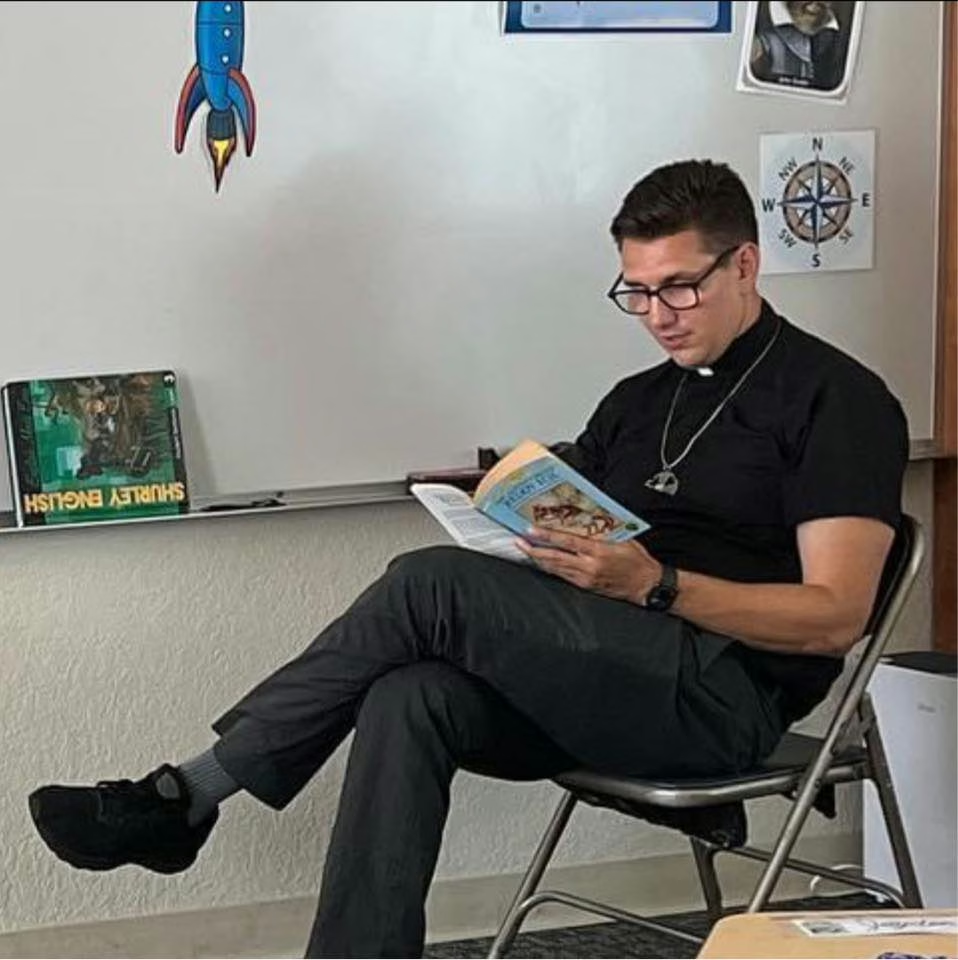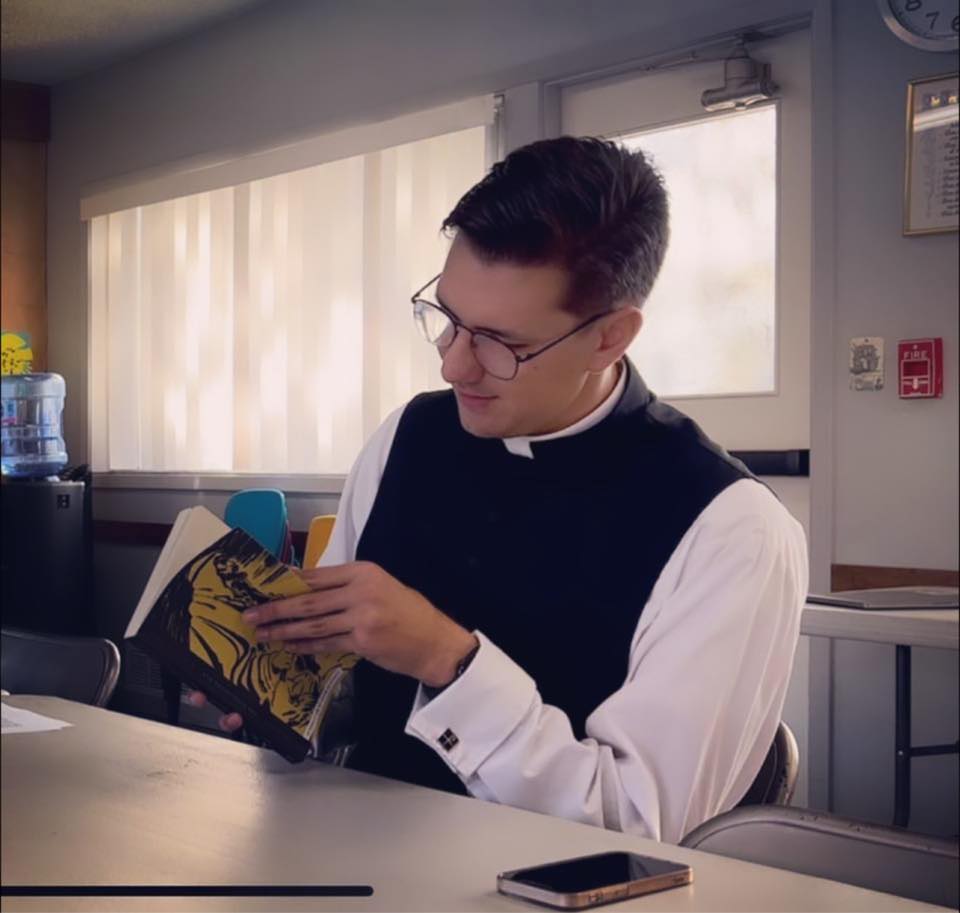In a recent First Things article, Mark Bauerlein reflects on how the relationship between students and teachers is dramatically changing in higher education. He notes that students today often see professors as distant providers of grades and content—rather than as mentors who shape their intellectual and moral lives. He points to a quieter, less engaged campus culture where deep conversations and meaningful guidance are rare.
As I lead at Canterbury, I believe we are committed to preserving something better. Our teachers cannot just be instructors—they are mentors, examples, and shepherds of hearts and minds. In an area where “college prep” education is increasingly transactional, I believe that formation (intellectual, spiritual, of manners and habits) happens best through real relationships, where students are known, challenged, and inspired by those who model virtue and an authentic, robust faith.
The article points to a few issues that are ruining the teacher-student relationship:
- Technology – smart phones and online learning are destroying discussion in and outside of the classroom.
I hate seeing lecture halls full of open laptops — just send them the powerpoint via email and use the class time to actually interact with the students. In the adult world, we say: “this could have been an email.” - Rising Tuition – the cost itself is not the problem, but rather that it “makes students think more about job prospects than humanitas…”
Somewhere along the way, they’ve been led to believe that an expensive degree is the only path to a good job—so they can pay off that very degree. It’s become a respectable version of a pyramid scheme, not unlike a refined version of Amway: a system that sells the promise of success while quietly entrenching dependency. - Education as a data dump – “Class is not an induction of eager minds into a teacher’s vision; it’s not even an invitation into a fraternity of intellectual and moral ambition. It is a requirement to fulfill and a body of information to retain.”
This trend is already creeping into high schools, middle schools, and even elementary classrooms, as many shift away from true education—formation of the whole person—and instead become pipelines into an impersonal, utilitarian workforce.
You can read the full article at First Things here: https://firstthings.com/when-teachers-dont-matter/



Leave a Reply